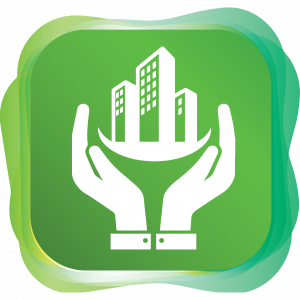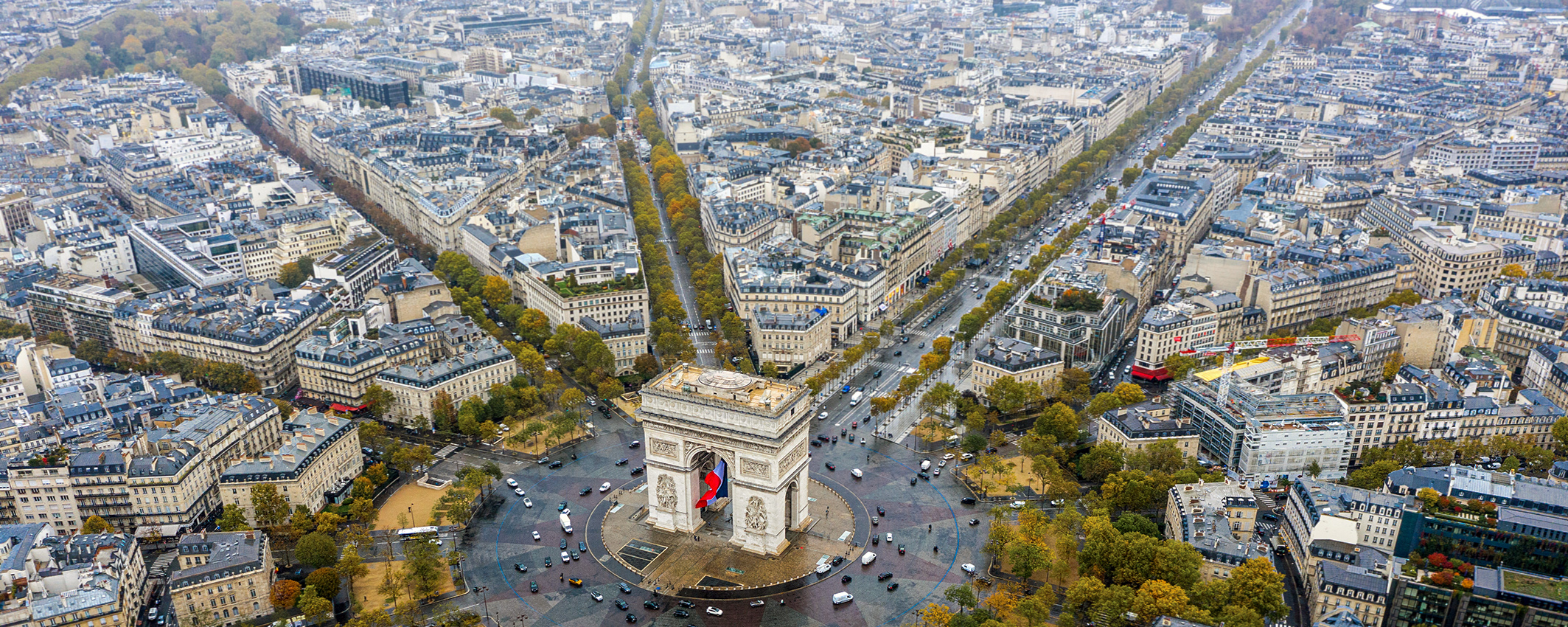 |
CCGL9070 Global IssuesThe Making of Cities and SocietiesThis course is under the thematic cluster(s) of:
|
Course Description
Cities are regarded as our greatest inventions. As political, socio-economic, and cultural centres, they exemplify human ingenuity, power, and capacity to manipulate resources and the environment. They also play crucial roles in shaping human settlement and development on both individual and collective levels. As such, they define human existence, ways of life, and civilisations. Since the 1800s, the unprecedented process of urbanisation and urban development in scale and speed has turned our Planet Earth into an Earthopolis, an urban planet. Over 55% of the global population now live in cities. The figure is estimated to rise to 68% by 2050. If the current urbanisation rate continues, the total global population living in cities could reach 100% by the end of this century. The unprecedented urbanisation and urban development process has a profound impact not only on our species but also on our planet. Though occupying only 3% of the Earth’s land surface (the Global Rural Urban Mapping Project), our world’s urban regions account for 80% of the global GDP, 60–80% of global energy consumption, 75% of global carbon emissions, and more than 75% of the world’s natural resource consumption. The future of humanity and our planet are fatefully linked with how our cities and urban regions are made and run. To understand how we have become an urban species; what fundamentally defines the ways we live and how we relate to each other and the wider world; how we now exert a planetary impact on Earth, and how we may achieve sustainable development, it is imperative to look into our urban evolutionary trajectory and investigate its milestones. This will allow us to learn from our urban heritage and experiences; reassess the nature, purposes, and functions of cities; examine our urban propensity and path dependency; and derive imaginaries from the millennium-long urban adaptation and reinventive process for sustainable urban and planetary future.
This course is designed to guide students in exploring the emergence of cities from the urban revolution around 4,000 BC first in Western Asia, through the key milestones of our urban evolution, to the current era of megacities and megaregions. In tracing this chronological trajectory, the course also trains students in examining a series of key themes concerning the making and remaking of cities across the globe, in terms of urban form, social structure, functions, and historical circumstances and forces that shape these. We will focus on the development of a particular urbanism as we expound each of these themes, while bringing in relevant comparative case studies to illustrate how these themes have been unravelled in similar and diverse ways in other urbanisms and historical periods. Relevant urban and planning theories will be introduced to facilitate our critical analysis of city-making.
The course aims to equip students with basic skills in individual and group research; critical thinking; and design, planning, and/or policy analysis and recommendation. This will be achieved through short weekly oral and written assignments, a group project on a major land use category for local urban and regional development in Hong Kong-Shenzhen within the Greater Bay Area of the Pearl River Delta, and a final research essay examining the urban development of a city in the historical or contemporary world on a particular theme covered in this course. Students will be guided systematically by the course teaching team on a weekly basis to develop the skills for delivering the expected outcomes.
[There will be a compulsory fieldtrip scheduled during the Reading Week.]
Course Learning Outcomes
On completing the course, students will be able to:
- Demonstrate a city-scale, integrative, and systemic understanding of cities by analysing the interconnections between urban form, social structure and governance, and functions in relation to individual and collective human life and behavioural patterns.
- Trace the historical trajectory of key urban morphological, governance, and functional features (e.g., grided form, humanistic planning and governance, public spaces and facilities, housing provision); analyse tradition and innovation by identifying common and distinctive features among diverse urban societies across different historical periods; and assess the impact of continuity and change in shaping contemporary urbanisms.
- Gain a scalar perspective of city-making on international, national, regional, and local levels and be able to analyse the interactions among these differentiated and interconnected scales of urban planning and design, policy-making, and urban functions.
- Locate and utilise reliable academic and professional resources and apply basic skills in project management, individual and group research, critical thinking, policy analysis and recommendation, and spatial analysis in academic and professional settings to deliver historically informed, methodologically aware, well-structured and composed, properly styled and referenced, and visually clear presentations and writings.
Offer Semester and Day of Teaching
Second semester (Wed)
Study Load
| Activities | Number of hours |
| Lectures | 22 |
| Tutorials | 9 |
| Field visit | 5 |
| Reading / Self-study | 34 |
| Assessment: Essay / Report writing | 40 |
| Assessment: Group project and presentation | 10 |
| Total: | 120 |
Assessment: 100% coursework
| Assessment Tasks | Weighting |
| Participation in lectures and tutorials | 10 |
| Short essays | 20 |
| Group project and presentation | 40 |
| Research paper | 30 |
Required Reading
- Blondé, B., & Ilja, V. D. (2013). Early Modern Europe: 1500–1800. In P. Clark (Ed.), The Oxford Handbook of Cities in World History (pp. 240–57). Oxford: Oxford University Press.
- Boone, M. (2013). Medieval Europe. In P. Clark (Ed.), The Oxford Handbook of Cities in World History (pp. 221–239). Oxford: Oxford University Press.
- De Weerdt, H. (2013). China: 600–1300. In P. Clark (Ed.), The Oxford Handbook of Cities in World History (pp. 292–309). Oxford: Oxford University Press.
- Hung, H. -F., & Zhan, S. (2013). Industrialization and the City: East and West. In P. Clark (Ed.), The Oxford Handbook of Cities in World History (pp. 645–63). Oxford: Oxford University Press.
- Lincoln, T. (2021). An Urban History of China. Cambridge: Cambridge University Press. [Chap. 1 (pp. 15-44) “The Emergence of China’s Imperial Urban Civilization (Antiquity to 220CE)”]
- Osborne, R., & Wallace-Hadrill, A. (2013). Cities of the Ancient Mediterranean. In P. Clark (Ed.), The Oxford Handbook of Cities in World History (pp. 49–65). Oxford: Oxford University Press.
- Otto, A. (2015). Neo-Assyrian capital cities: from imperial headquarters to cosmopolitan cities. In Y. Norman (Ed.), Early Cities in Comparative Perspective, 4000 BCE–1200 BCE (pp. 469–490). Cambridge: Cambridge University Press.
- Pittman, H. (2019). The First Cities. In S. Tinny & K. Sonik (Eds.), Journey to the City: A Companion to the Middle East Galleries at the Penn Museum (pp. 46–75). Philadelphia: University of Pennsylvania Museum.
- Rowe, W. T. (2013). China: 1300–1900. In P. Clark (Ed.), The Oxford Handbook of Cities in World History (pp. 310–27). Oxford: Oxford University Press.
- Terrenato, N. (2015). The archetypal imperial city: the rise of Rome and the burdens of empire. In N. Yoffee (Ed.), Early Cities in Comparative Perspective, 4000 BCE–1200 BCE (pp. 513–532). Cambridge: Cambridge University Press.
- UN Habitat. (2022). World Cities Report 2022. From https://unhabitat.org/wcr/ [pp. xv–xxxi; 1–29; 301–327]
Course Co-ordinator and Teacher(s)
| Course Co-ordinator | Contact |
| Professor S.Y. Chen School of Humanities (History), Faculty of Arts |
Tel: 3917 2427 Email: yischen@hku.hk |
| Teacher(s) | Contact |
| Professor S.Y. Chen School of Humanities (History), Faculty of Arts |
Tel: 3917 2427 Email: yischen@hku.hk |

